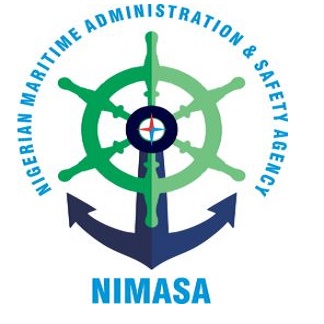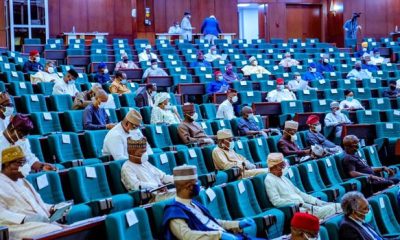Business
Who is Afraid of a Maritime Regulator?* By Philip Agbese

In the vast expanse of commerce and industry, the term regulation elicits a multifaceted response, precipitating a dichotomy of opinions. On one hand, regulation is perceived as a vital mechanism to ensure a level playing field, safeguard consumer interests, and maintain market integrity. Conversely, it is often met with trepidation and apprehension, particularly by those who fear the potential consequences of increased costs, bureaucratic red tape, and interference with business operations.
This dichotomy is presently unfolding in Nigeria’s maritime industry, where the proposed Nigeria Shipping and Port Economic Regulatory Agency Bill has sparked a contentious debate among stakeholders. The maritime industry, aptly referred to as the lifeblood of global trade, is characterized by its intricate complexity, involving a diverse array of stakeholders, including shipping companies, port authorities, and regulatory bodies. As a critical component of Nigeria’s economy, it facilitates international trade and contributes substantially to the country’s Gross Domestic Product (GDP).
Notwithstanding its importance, the maritime industry operates in the absence of a dedicated regulator, raising concerns regarding the standardization of practices, safety protocols, and environmental sustainability. Moreover, the industry is not immune to challenges such as unfair pricing practices, arbitrary charges, and inefficiencies in port operations, underscoring the need for effective regulation.
However, the question remains: who is afraid of a maritime regulator, and why? Is it the fear of increased costs, the potential for bureaucratic interference, or the apprehension of change in a traditionally unregulated industry? As the debate rages on, it is essential to consider the benefits of regulation, including enhanced safety standards, improved efficiency, and a level playing field for all stakeholders. Only then can we address the concerns of those afraid of a maritime regulator and chart a course for a more robust and sustainable maritime industry.
To provide a comprehensive response to this query, it is essential to elucidate the role of a regulator. In its essence, a regulator serves as a vigilant watchdog, ensuring that industry participants conform to established rules and standards, thereby maintaining a level playing field and promoting a culture of compliance. This function is crucial in any industry, but it assumes even greater significance in sectors like maritime, where the stakes are exceedingly high and the potential for malpractice is substantial.
A maritime regulator can play a pivotal role in ensuring fair and transparent pricing practices, safeguarding shippers from arbitrary and exorbitant charges, and promoting efficiency and productivity in port operations. These outcomes can, in turn, lead to reduced shipping costs, stimulate trade, and ultimately drive economic growth and development.
The recent proposal for a bill to regulate shipping in Nigeria has sparked anxieties and apprehensions among some stakeholders regarding the creation of a new agency and the potential for increased governance costs. While these concerns are understandable, they belie the significant economic benefits that a well-designed regulatory framework can bring to the maritime industry, including enhanced safety standards, improved efficiency, and increased investor confidence.
However, this fear is misplaced and stems from a lack of understanding of the critical role regulators play in fostering economic growth and development. By establishing clear rules and standards, regulators can promote competition, innovation, and investment, ultimately leading to a more robust and sustainable industry.
Regulators play a vital role in any industry, and their presence has been instrumental in promoting economic efficiency, safety, and innovation across various sectors. To fully appreciate the significance of a maritime regulator, it is essential to examine the economic benefits that regulatory oversight has yielded in other industries. Across various sectors, the presence of regulators has proven instrumental in fostering transparency, enhancing consumer confidence, and mitigating systemic risks, thereby contributing to the overall stability and growth of industries.
By ensuring compliance with established standards and regulations, regulators have played a crucial role in attracting investments, stimulating economic development, and promoting market integrity. In the financial sector, for instance, regulatory authorities have been instrumental in upholding banking and investment standards, thereby bolstering market integrity and minimizing the occurrence of fraudulent activities. The Central Bank of Nigeria (CBN), for example, has ensured stability and soundness in the financial system through its regulatory actions.
Similarly, in the telecommunications industry, the Nigerian Communications Commission (NCC) has played a pivotal role in regulating the sector, leading to increased competition, improved service delivery, and significant economic growth. The presence of regulators in these industries has not only enhanced consumer protection but also promoted innovation, efficiency, and competitiveness, ultimately contributing to the overall development of the economy. Also, in the healthcare industry, regulatory bodies have played a vital role in ensuring the quality and safety of pharmaceutical products, thereby inspiring consumer trust and fostering innovation. The regulatory framework has created an environment where manufacturers are held to high standards, resulting in improved product reliability and effectiveness. This, in turn, has boosted consumer confidence and driven innovation, leading to the development of new and improved treatments.
Likewise, the Nigerian Electricity Regulatory Commission (NERC) has played a crucial role in the power sector, ensuring that operators adhere to stringent safety standards and promoting investment in the industry. NERC’s regulatory oversight has created an environment conducive to growth, attracting investors and driving innovation in the sector.
These examples highlight the positive correlation between effective regulatory oversight and economic prosperity, emphasizing the need for a similar framework in the maritime industry. The maritime industry is not immune to the benefits of regulation, and the need for a regulator is long overdue. The industry has been plagued by inefficiencies, corruption, and a lack of standardization, leading to increased costs and reduced competitiveness. The introduction of a regulator will help address these challenges, promoting economic efficiency and growth in the industry.
The regulator will establish clear guidelines and standards, ensuring that operators comply with safety protocols and environmental regulations. This will create a level playing field, promoting competition and innovation, and driving economic growth in the industry. Moreover, the regulator will provide a framework for dispute resolution, protecting the interests of consumers and operators alike. By establishing a regulatory framework, the maritime industry can unlock its full potential, contributing significantly to Nigeria’s economic development.
Across a wide range of industries, regulators play a vital role in fostering economic growth and stability. They establish clear rules of the game, ensuring fair competition and protecting consumers from bad actors. In the maritime sector, effective regulation is essential for:
The establishment of a robust regulatory framework can markedly enhance maritime safety by setting and enforcing stringent standards for ship construction, maintenance, and operation. This significantly reduces the risk of accidents and environmental damage, thereby protecting precious lives and property. Moreover, regulations can effectively address security concerns, such as piracy and terrorism, by implementing measures to prevent and respond to such threats.
Efficiency and Productivity:
Regulations can play a vital role in streamlining operations and improving efficiency in the maritime industry. By establishing standardized procedures and documentation, regulators can substantially reduce administrative burdens, expedite the movement of goods, and facilitate the seamless execution of maritime transactions.
Investment and Innovation:
A clear, predictable, and well-defined regulatory environment can attract significant investment to the maritime sector. Investors are more likely to be willing to invest in an industry where the rules are transparent, well-defined, and enforced, thereby fostering a climate of confidence and stability. This, in turn, can lead to innovation and the development of new technologies that can further improve efficiency, safety, and environmental sustainability in the maritime industry.
The establishment of a maritime regulator has the potential to transform the industry’s dynamics, cultivating a culture of accountability, compliance, and innovation. By establishing clear guidelines for vessel operations, cargo handling, and environmental protection, a maritime regulator can significantly enhance operational efficiency, reduce the incidence of maritime accidents, and minimize environmental degradation. Furthermore, regulatory oversight can create a level playing field for industry participants, curbing unfair practices and promoting healthy competition, ultimately benefiting consumers and the global economy at large.
If, as some stakeholders claim, the proposed maritime regulatory bill is merely a bureaucratic exercise with no tangible benefits, then their concerns are understandable. However, the potential benefits of a well-designed regulatory framework are substantial and cannot be overstated. The question that arises, therefore, is who is truly afraid of a maritime regulator?
The development of a maritime regulatory framework is a complex and intricate undertaking, requiring careful consideration and expertise. It is crucial to get it right, as a poorly designed regulatory framework could have the unintended consequence of stifling growth and innovation, while a well-designed framework can deliver significant economic benefits, driving growth and development in the industry.
In order to effectively address the concerns of stakeholders, the Nigerian government can adopt a transparent and inclusive approach to developing the regulatory framework, affording stakeholders the opportunity to provide input on the proposed regulations. The government should also clearly articulate the objectives of regulation and the enforcement mechanisms, ensuring transparency in decision-making and implementation.
To mitigate the risks of corruption, the regulatory agency should be established with robust governance structures and clear lines of accountability, ensuring transparency in decision-making and enforcement. By weighing the potential costs of a new maritime regulatory agency against the potential benefits, it becomes evident that the benefits of improved safety, security, efficiency, investment, and innovation far outweigh the costs, leading to increased economic growth and prosperity for Nigeria.
The fear of a maritime regulator is misplaced, and the industry requires regulation to promote economic efficiency, safety, and innovation. The implementation of a maritime regulator is not a cause for fear; rather, it represents a crucial step towards ensuring the sustainability and integrity of the global maritime industry. By drawing parallels with the economic benefits of regulatory oversight in other sectors, it becomes evident that a maritime regulator can catalyze positive transformation, fostering a conducive environment for growth, innovation, and responsible practices.
In conclusion, the Nigerian government should not be swayed by the anxieties of some stakeholders, as the potential benefits of a well-designed maritime regulatory framework far outweigh the costs. The industry will experience significant growth and development with the presence of a regulator, and the Nigerian maritime industry has the potential to be a major driver of economic growth. Therefore, we must embrace the proposed shipping regulatory bill and support the establishment of a maritime regulator. Embracing the presence of a maritime regulator is not just a regulatory imperative; it is a strategic investment in the future of maritime trade, one that holds the potential to yield far-reaching economic and societal benefits.
Agbese is the Deputy Spokesman, 10th House of Representatives writing from Abuja.
Business
Nigeria’s Inflation Drops to 15.10% as NBS Reports Deflationary Trend

Nigeria’s headline inflation rate declined to 15.10 per cent in January 2026, marking a significant drop from 27.61 per cent recorded in January 2025, according to the latest Consumer Price Index (CPI) report released by the National Bureau of Statistics.
The report also showed that month-on-month inflation recorded a deflationary trend of –2.88 per cent, representing a 3.42 percentage-point decrease compared to December 2025. Analysts say the development signals easing price pressures across key sectors of the economy.
Food inflation stood at 8.89 per cent year-on-year, down from 29.63 per cent in January 2025. On a month-on-month basis, food prices declined by 6.02 per cent, reflecting lower costs in several staple commodities.
The data suggests a sustained downward trajectory in inflation over the past 12 months, pointing to improving macroeconomic stability.
The administration of President Bola Ahmed Tinubu has consistently attributed recent economic adjustments to ongoing fiscal and monetary reforms aimed at stabilising prices, boosting agricultural output, and strengthening domestic supply chains.
Economic analysts note that while the latest figures indicate progress, sustaining the downward trend will depend on continued policy discipline, exchange rate stability, and improvements in food production and distribution.
The January report provides one of the clearest indications yet that inflationary pressures, which surged in early 2025, may be moderating.
Bank
Alpha Morgan to Host 19th Economic Review Webinar

Alpha Morgan to Host 19th Economic Review Webinar
In an economy shaped by constant shifts, the edge often belongs to those with the right information.
On Wednesday, February 25, 2026, Alpha Morgan Bank will host the 19th edition of its Economic Review Webinar, a high-level thought leadership session designed to equip businesses, investors, and individuals with timely financial and economic insight.
The session, which will hold live on Zoom at 10:00am WAT and will feature economist Bismarck Rewane, who will examine the key signals influencing Nigeria’s economic direction in 2026, including policy trends, market movements, and global developments shaping the local landscape.
With a consistent track record of delivering clarity in uncertain times, the Alpha Morgan Economic Review continues to provide practical context for decision-making in a dynamic environment.
Registration for the 19th Alpha Morgan Economic Review is free and can be completed via https://bit.ly/registeramerseries19
It is a bi-monthly platform that is open to the public and is held virtually.
Visit www.alphamorganbank to know more.
Business
GTBank Launches Quick Airtime Loan at 2.95%

GTBank Launches Quick Airtime Loan at 2.95%
Guaranty Trust Bank Ltd (GTBank), the flagship banking franchise of GTCO Plc, Africa’s leading financial services group, today announced the launch of Quick Airtime Loan, an innovative digital solution that gives customers instant access to airtime when they run out of call credit and have limited funds in their bank accounts, ensuring customers can stay connected when it matters most.
In today’s always-on world, running out of airtime is more than a minor inconvenience. It can mean missed opportunities, disrupted plans, and lost connections, often at the very moment when funds are tight, and options are limited. Quick Airtime Loan was created to solve this problem, offering customers instant access to airtime on credit, directly from their bank. With Quick Airtime Loan, eligible GTBank customers can access from ₦100 and up to ₦10,000 by dialing *737*90#. Available across all major mobile networks in Nigeria, the service will soon expand to include data loans, further strengthening its proposition as a reliable on-demand platform.
For years, the airtime credit market has been dominated by Telcos, where charges for this service are at 15%. GTBank is now changing the narrative by offering a customer-centric, bank-led digital alternative priced at 2.95%. Built on transparency, convenience and affordability, Quick Airtime Loan has the potential to broaden access to airtime, deliver meaningful cost savings for millions of Nigerians, and redefine how financial services show up in everyday life, not just in banking moments.
Commenting on the product launch, Miriam Olusanya, Managing Director of Guaranty Trust Bank Ltd, said: “Quick Airtime Loan reflects GTBank’s continued focus on delivering digital solutions that are relevant, accessible, and built around real customer needs. The solution underscores the power of a connected financial ecosystem, combining GTBank’s digital reach and lending expertise with the capabilities of HabariPay to deliver a smooth, end-to-end experience. By leveraging unique strengths across the Group, we are able to accelerate innovation, strengthen execution, and deliver a more integrated customer experience across all our service channels.”
Importantly, Quick Airtime Loan highlights GTCO’s evolution as a fully diversified financial services group. Leveraging HabariPay’s Squad, the solution reinforces the Group’s ecosystem proposition by bringing together banking, payment technology, and digital channels to deliver intuitive, one-stop experiences for customers.
With this new product launch, Guaranty Trust Bank is extending its legacy of pioneering digital-first solutions that have redefined customer access to financial services across the industry, building on the proven strength of its widely adopted QuickCredit offering and the convenience of the Bank’s iconic *737# USSD Banking platform.
About Guaranty Trust Bank
Guaranty Trust Bank (GTBank) is the flagship banking franchise of GTCO Plc, a leading financial services group with a strong presence across Africa and the United Kingdom. The Bank is widely recognized for its leadership in digital banking, customer experience, and innovative financial solutions that deliver value to individuals, businesses, and communities.
About HabariPay
HabariPay is the payments fintech subsidiary of GTCO Plc, focused on enabling fast, secure, and accessible digital payments for individuals and businesses. By integrating payments and digital technology, HabariPay supports innovative services that make everyday financial interactions simpler and more seamless.
Enquiries:
GTCO
Group Corporate Communication
[email protected]
+234-1-2715227
www.gtcoplc.com
-

 celebrity radar - gossips6 months ago
celebrity radar - gossips6 months agoWhy Babangida’s Hilltop Home Became Nigeria’s Political “Mecca”
-

 society6 months ago
society6 months agoPower is a Loan, Not a Possession: The Sacred Duty of Planting People
-

 society5 months ago
society5 months agoReligion: Africa’s Oldest Weapon of Enslavement and the Forgotten Truth
-

 news6 months ago
news6 months agoTHE APPOINTMENT OF WASIU AYINDE BY THE FEDERAL GOVERNMENT AS AN AMBASSADOR SOUNDS EMBARRASSING









